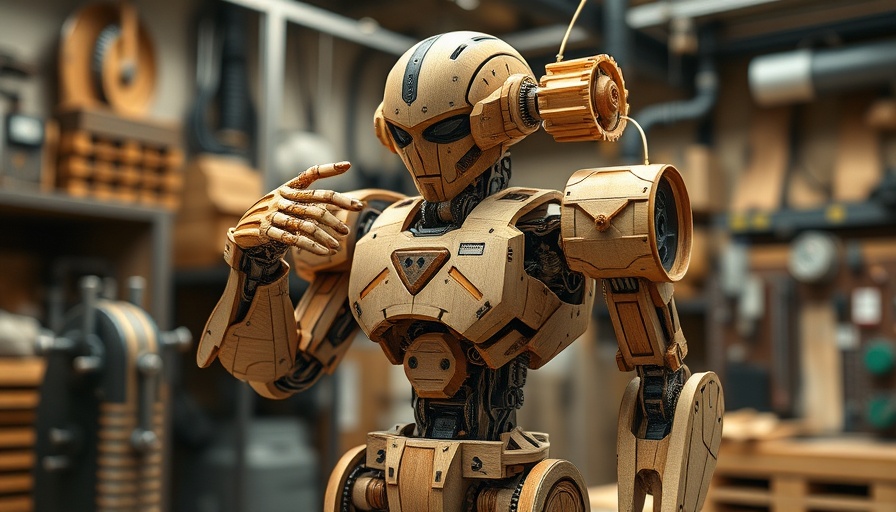
Revolutionizing Robotics: The Birth of Electronics-Free Walking Robots
Imagine a world where robots can walk autonomously, crafted directly from a 3D printer and requiring no complex electronics. Researchers at the University of California - San Diego are making this vision a reality with their groundbreaking development of electronics-free robots. These innovative machines are designed to operate using only a cartridge of compressed gas, allowing them to walk right off the printer and function effectively in challenging environments.
Innovative Design Meets Affordability
One of the standout features of these robots is their simplicity. Using just a standard desktop 3D printer and off-the-shelf materials, each robot can be manufactured for approximately $20. This cost-effective approach not only makes robotics more accessible but also gives rise to an entirely new perspective on machine design.
Adaptability in Extreme Environments
The potential applications for these robots are vast. Their electronics-free nature makes them ideal for scenarios where traditional electronics could fail, such as in high-radiation areas or during disaster response operations. The research team has demonstrated that the robots can walk for three days continuously under a constant gas pressure and can even traverse a variety of terrains, including sand and turf, while functioning underwater. This durability underscores their potential for scientific reconnaissance and space exploration.
A Leap Forward in Robotic Technology
By employing a pneumatic oscillating circuit to control the robot's movement, the researchers have mimicked the mechanics of a steam engine, allowing for coordinated leg movements. With the capacity to move in multiple directions, the robots represent a significant leap from previous designs that relied on more rigid materials and traditional electronics.
Future Steps and Sustainability
Looking ahead, the team plans to explore ways to store compressed gas within the robots, which would lead to further advancements in their design. Enhancements aimed at incorporating recyclable materials are also on the horizon, aligning the development of these robots with sustainable practices. As the innovation progresses, the applications for these electronics-free robots are expected to expand, carving new pathways in robotic technology.
 Add Row
Add Row  Add
Add 




Write A Comment